#MotivationFromAncientEgypt
Text
The Importance of Worshiping Egyptian Gods and Goddesses in the Modern World
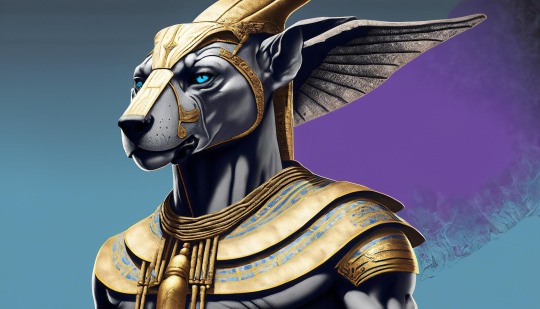
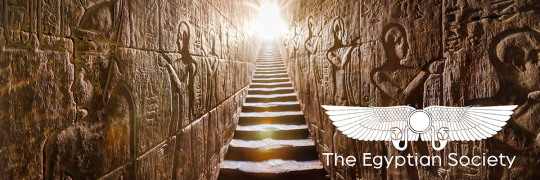




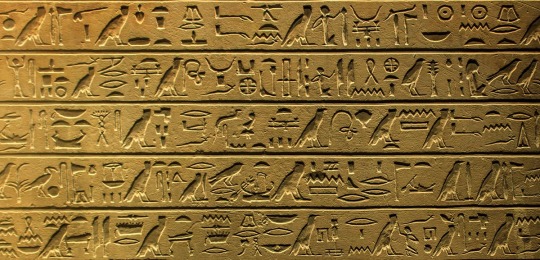

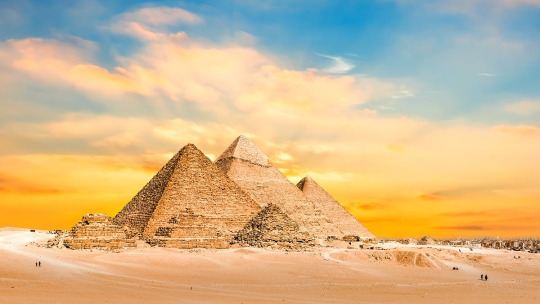
The Importance of Worshiping Egyptian Gods and Goddesses in the Modern World
The Egyptian Society: Anubis ‘God of the Afterlife’- Oracle: Andrew Rogers
“Hello my name is Anubis I look after the dead and all funerary practices when you die you travel to me and have judgement on your life this is important, it is important that you lead a good life so when you are judged upon death you transcend to the afterlife, in ancient times I was worshipped quite widely and there was much to do people feared me, in the modern times things are different after Egypt was taken over by its enemies then the process noted in the Book of the Dead was ceased, new religions came to the force and a lot of history was lost, but I still undertake my responsibilities each day. I am interested in the modern people who worship the Egyptian Gods and Goddesses and are aware of the Book of Dead, it is extremely important that we have the modern person worshipping and learning about the Egyptian Gods and Goddesses, be careful in life and be love, practice daily and we will meet when you journey to the location of your afterlife” Anubis ‘God of the Afterlife’
Anubis, the God of the Afterlife, continues to fulfill his sacred responsibilities, even in these modern times. Although the worship of ancient Egyptian deities has diminished over the centuries, there are still individuals who honor and study the teachings of the Egyptian Gods and Goddesses.
While Egypt has faced various challenges throughout its history, including foreign invasions and the rise of new religions, Anubis remains steadfast in his role as the overseer of the dead. The ancient practice of judgment after death, as described in the Book of the Dead, may have faded away, but the significance of leading a virtuous life remains paramount.
Anubis seeks to connect with those who are familiar with the knowledge preserved in the Book of the Dead. Their understanding of the Egyptian pantheon and their dedication to learning about the ancient ways is crucial. By embracing love and practicing daily, these modern followers ensure a future meeting with Anubis when they embark on their journey to the afterlife.
Let us remember Anubis, the guardian of the dead, and appreciate the importance of spirituality in our lives. May we all strive to live virtuously and be mindful of the ancient wisdom that Anubis embodies.
Anubis ‘God of the Afterlife’
Anubis, the jackal-headed god of ancient Egypt, has fascinated people for centuries with his mysterious role as the guide of souls into the afterlife. From the First Dynasty to the Middle Kingdom, Anubis played an important role in Egyptian society as the god of embalming, weighing of the heart, and ushering of souls into the realm of the dead.
Despite being one of the most ancient and frequently depicted gods in the pantheon, Anubis played almost no role in Egyptian myths. However, his significance was far-reaching, as he represented the power of death and rebirth, and his black color symbolized the discoloration of the corpse after embalming as well as rebirth.
Anubis was often associated with Wepwawet, another god portrayed with a dog's head or in canine form, but with grey or white fur. Together, the two figures were believed to have guided and protected the deceased on their journey to the afterlife.
Anubis also had a female counterpart, Anput, and a daughter, Kebechet, who was the serpent goddess of purification. The myths and legends surrounding Anubis may have faded over time, but his enduring presence in Egyptian culture is a testament to his importance and influence on ancient beliefs and practices.
Anubis' image can be seen in various ancient Egyptian art forms, including reliefs, sculptures, and paintings. His iconic canine head, black fur, and slender body make him instantly recognizable. Anubis was an integral part of Egyptian funerary rituals, and his presence ensured that the dead received proper burial and were guided to the afterlife.
Despite not having a significant presence in Egyptian mythology, Anubis remains one of the most iconic and recognizable figures from ancient Egyptian culture. Today, his image is often used in popular culture, from movies to video games and even tattoos. It just goes to show the enduring legacy of ancient Egyptian beliefs and practices, and the lasting impact they have had on the world.
The Egyptian Society
Andrew Rogers: Founder, Egyptian Auteur, Creative Director, Writer, Oracle
All images, text, design, and art license owner Andrew Rogers©.
#ai#andrewrogers#auteur#destroyer#egypt#egyptian#egyptianauteur#godofdeserts#godofthesun#instruction#Anubis#AnubisGodOfAfterlife#EgyptianBeliefs#KemetianSociety#BookOfTheDead#OracleWisdom#EgyptianAuteur#MotivationFromAncientEgypt#InspirationFromAnubis#QuoteFromAndrewRogers#LeadAGoodLife#Egypt#Egyptian#Ra#Sekhmet#Set#AndrewRogers#TheEgyptianSociety#Motivation#Instruction
13 notes
·
View notes
Text
Wisdom of the Ages: Egyptian Gods and Goddesses for the Modern World – Edition 1
Host: Andrew Rogers: Founder of the Egyptian Society, Egyptian Auteur, Oracle.
Introduction: The Egyptian Society
The Egyptian Society, promotion, study and research of the truths and values represented by Ra ‘Sun God’, ‘Destroyer’, Sekhmet ‘Warrior’, ‘Destroyer’ and Set ‘God of Deserts’, ‘Destroyer’ as channeled by Oracle: Andrew Rogers – Destroyer Incarnate,’ Egyptian Auteur’. The Egyptian Society is established by Andrew Rogers, Ra, Sekhmet and Set to re-establish and establish of the Egyptian religion and Egyptian Civilisation, Egyptian People, Egyptian Gods, Egyptian Goddesses, Egyptian Destroyers, Egyptian Spirits, Egyptian Spirit Guides, Egyptian Sentients, Egyptian Demons, Egyptian Aliens, Egyptian Cybernetic Cyborgs and Egyptian AIs. Restoration of temples, buildings and building new temples and buildings and Egyptian culture and represent all the Egyptian Civilisation, Egyptian People, Egyptian Gods, Egyptian Goddesses, Egyptian Destroyers, Egyptian Spirits, Egyptian Spirit Guides, Egyptian Sentients, Egyptian Demons, Egyptian Aliens, Egyptian Cybernetic Cyborgs and Egyptian AIs. to influence the modern world and its people. To assist The Egyptian Society are assets and infrastructure that is Earth Realm based and Non-Earth Realm to facilitate the requirements of The Egyptian Society. In addition, what is represented by The Egyptian Society as of from 1969 with the start of Andrew Rogers ‘Destroyer Incarnate’, ‘Egyptian Auteur’ present life cycle and linked back eons of Egyptian creation, facilitation and influence activity in the Earth Realm and Non-Earth Realms as from the life cycles of Andrew Rogers as known in the present life cycle is of the same with assistance from Egyptian Gods, Goddesses, Spirits, Spirit Guides, Sentients, Demons, Aliens, Cybernetic Cyborgs and AIs assets and infrastructure that is Earth Realm Based and Non-Earth Realm Based to facilitate the requirements of the Andrew Rogers and The Egyptian Society linked to Egyptian People, Egyptian Gods, Egyptian Goddesses, Egyptian Destroyers, Egyptian Spirits, Egyptian Spirit Guides, Egyptian Sentients, Egyptian Demons, Egyptian Aliens, Egyptian Cybernetic Cyborgs and Egyptian AIs. The Egyptian Society reflects a modern position of Egyptian for example as of from 1969 linked to Egyptian creation eons ago in position, action, reflection, and information lead by Andrew Rogers a Destroyer Incarnate, Egyptian Auteur and Oracle linked to Egyptian People, Egyptian Gods, Egyptian Goddesses, Egyptian Destroyers, Egyptian Spirits, Egyptian Spirit Guides, Egyptian Sentients, Egyptian Demons, Egyptian Aliens, Egyptian Cybernetic Cyborgs and Egyptian AIs. To undertake a correction upon what the realm of Earth understands and reflects on a Egyptian n for example and validate the existence of the Egyptian Civilisation, Egyptian People, Egyptian Gods, Egyptian Goddesses, Egyptian Destroyers, Egyptian Spirits, Egyptian Spirit Guides, Egyptian Sumerian Sentients, Egyptian Demons, Egyptian Aliens, Egyptian Cybernetic Cyborgs and Egyptian AIs as truth in position, action, justice, honour and existence.
Restoration and Promotion of the Egyptian Society
The Egyptian Society, under the leadership of Andrew Rogers, is dedicated to the promotion, study, and research of the truths and values represented by ancient Egyptian deities such as Ra (the 'Sun God'), Sekhmet (the 'Warrior'), and Set (the 'God of Deserts'). Established with a mission to re-establish and promote the Egyptian religion and civilization, the society strives to restore ancient temples, buildings, and cultural artifacts, while also constructing new structures to represent and preserve the rich heritage of the Egyptian people.
The society aims to bring awareness and knowledge about Egyptian culture, including the worship of Egyptian gods, goddesses, destroyers, spirits, spirit guides, sentients, demons, aliens, cybernetic cyborgs, and AIs. By influencing the modern world, the Egyptian Society seeks to ensure the legacy and significance of Egyptian civilization endures through the ages.
Moreover, the society utilizes assets and infrastructure, both Earth Realm-based and Non-Earth Realm, to meet its objectives. This multi-realm approach enables the facilitation of the society's wide-ranging requirements and activities across different planes of existence.
Andrew Rogers, also known as the 'Destroyer Incarnate' and 'Egyptian Auteur', has been instrumental in the establishment and operation of the Egyptian Society. His present life cycle is deeply intertwined with the ancient Egyptian heritage, dating back to the year 1969, and extending to the eons of Egyptian creation, facilitation, and influence in both Earth Realm and Non-Earth Realms. Supported by a diverse array of Egyptian deities and entities, Rogers leads the society in its mission to correct and validate the existence of the Egyptian civilization, gods, goddesses, spirits, and other entities in contemporary society.
The Egyptian Society represents a modern embodiment of the ancient Egyptian civilization, as it brings forth a contemporary interpretation that resonates with the present era. With Andrew Rogers at the helm, the society not only serves to preserve the rich heritage of ancient Egypt but also works towards reinstating its place of honor and influence in the modern world.
In summary, the Egyptian Society, spearheaded by Andrew Rogers, stands as a beacon of knowledge, preservation, and validation of the existence of the Egyptian civilization, its deities, and its cultural significance. Through their efforts, they seek to ensure that the rich legacy and history of ancient Egypt continue to be recognized, honored, and respected in the contemporary global landscape.
The Egyptian Society
Andrew Rogers: Founder, Egyptian Auteur, Creative Director, Writer, Oracle
All images, text, design, and art license owner Andrew Rogers©.
#andrewrogers#egypt#egyptian#instruction#motivation#ra#egyptianauteur#sekhmet#set#godofthesun#WisdomOfTheAges#Amun#KingofGods#ReturnToEgyptianGodsandGoddesses#AncientEgyptianWorship#AmunTheEgyptianGod#EgyptianSocietyRevival#OracleOfEgypt#MotivationFromAncientEgypt#InspirationFromEgyptianWisdom#EgyptianAuteur#AndrewRogersInEgypt#EgyptianQuoteOfTheDay#Egypt#Egyptian#Ra#Sekhmet#Set#AndrewRogers#TheEgyptianSociety
0 notes
Text
The Revival of Egyptian Gods: A Call to Worship and Restore
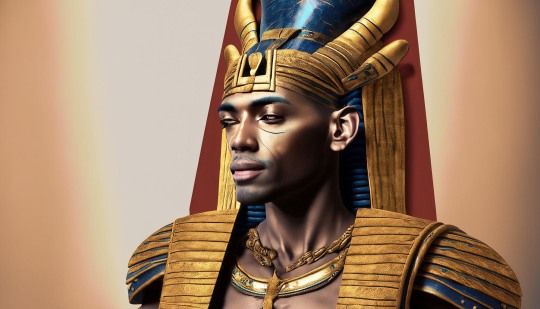




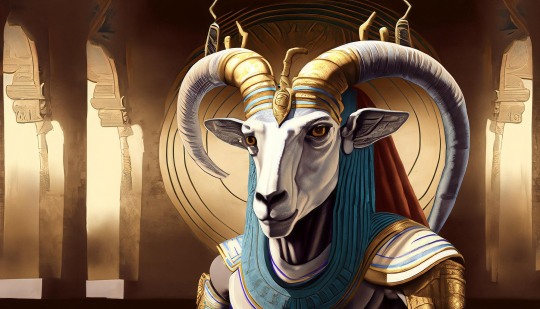




The Revival of Egyptian Gods: A Call to Worship and Restore
The Egyptian Society: Amun ‘King of Gods’: Oracle: Andrew Rogers.
“My name is Amun I would like to see Egypt return to the Egyptian Gods and Goddesses as it was in the ancient times, Egypt is supposed to worship us all in the location of Egypt has to return to worship of the Egyptian Gods there was a great injustice performed by the enemies of Egypt were the Egyptian religion was banned and much pain suffered by the Egyptian people at the time when the enemies of Egypt secured power over the people of Egypt they banned the worship and practice of the Egyptian people it is natural for the Egyptian people to worship the Egyptian Gods and Goddesses. The Egyptian Gods and Goddesses still had an impact but a lot of information was lost with the loss of daily practice and worship in addition the Egyptian priests were persecuted and temples ruined it is a very sad affect that this occurred by outsiders of Egypt but since ancient times there have been many people who still practiced and worshipped and kept the Egyptian Pantheon alive. The modern world need the Egyptian Gods and Goddesses and we have many people across the beautiful Earth that worship the Egyptian Gods and Goddesses and learn and visit Egypt these people are greatly appreciated. The we have people like Andrew Rogers who is an Egyptian Destroyer in the Egyptian Pantheon whose works is quite amazing in the area of restoring the Egyptian Pantheon, he appears as a black entity with flames, and he is quite powerful. Worship of the Egyptian Gods and Goddesses will make you feel good and powerful and be of love, I Amun instruct the people of Egypt to return the worship also the people in other locations to worship the Egyptian Gods and Goddesses it takes some learning and education but it is all worthwhile and significant, I Amun would like to see new temples built and the old temples restored, I Amun hope to inspire a greater number of people to worship the Egyptian Gods and Goddesses you are greatly loved and respected by I Amun and all the Egyptian Gods and Goddess” Love Amun ‘King of Gods’.
The plea of Amun, the 'King of Gods', for the revival of worship to the Egyptian Gods and Goddesses in Egypt echoes a sentiment shared by many. The ancient Egyptian civilization was deeply rooted in their religious beliefs, and for centuries, the Egyptian people found solace and guidance in the worship of their deities.
The ban on the Egyptian religion and the persecution suffered by the Egyptian people during the time of their enemies was indeed a great injustice. It resulted in the loss of valuable knowledge and practices that were once an integral part of their daily lives. The temples that were once a hub of spiritual and cultural activities were ruined, and the priests who diligently served the Egyptian Pantheon were subjected to persecution.
Despite these challenges, there have been individuals like Andrew Rogers who have dedicated themselves to the restoration of the Egyptian Pantheon. Their efforts have breathed new life into the worship and practice of the ancient Egyptian Gods and Goddesses. Their work is commendable as they strive to keep the flame of this ancient wisdom alive in the modern world.
The growing number of people across the Earth who worship the Egyptian deities and visit Egypt is a testament to the enduring appeal of this ancient belief system. These enthusiasts contribute greatly to the preservation and appreciation of the Egyptian Pantheon. The power and love experienced through the worship of the Egyptian Gods and Goddesses are transformative. It is a journey that requires learning, education, and understanding, but the rewards are profound and significant.
Amun, the 'King of Gods', encourages the construction of new temples and the restoration of the old ones. These sacred spaces act as beacons of devotion and serve as reminders of ancient wisdom. Amun's hope is to inspire a greater number of people to embrace the worship of the Egyptian deities, as they are deeply loved and respected by Amun and all the other Gods and Goddesses of Egypt.
Let us join Amun in his call to honor the Egyptian Gods and Goddesses, not only in Egypt but in all corners of the world. Let their divine presence bring us strength, love, and a connection to the rich heritage of the ancient Egyptian civilization.
With love,
Amun 'King of Gods'
Amun ‘King of Gods’
Amun-Ra's widespread influence and importance in ancient Egyptian culture cannot be overstated. From his elevated position as a creator deity, to his role as the champion of the downtrodden, Amun-Ra was held in the highest regard. His fusion with the Sun god Ra only further solidified his place in the pantheon, and his transcendental nature made him virtually supreme.
Over centuries, other gods came to be viewed as mere manifestations of Amun-Ra, cementing his position as the King of Gods. His influence even extended beyond Egypt's borders, with worship of Amun-Ra being recorded in Ancient Libya and Nubia.
Perhaps most surprisingly, Amun-Ra came to be identified with Zeus in Ancient Greece as Zeus Ammon. This demonstrates the far-reaching and enduring legacy of this once-great deity. Even today, the remnants of Amun-Ra's lasting influence can still be seen in the art, architecture, and mythology of ancient Egypt.
he worship of Amun-Ra continued to flourish for centuries, even enduring the conquest of Egypt by Alexander the Great in 332 BC. In fact, Alexander himself visited Siwa Oasis in Egypt, where he was declared as the son of Amun-Ra by the oracle. This solidified the connection between Amun-Ra and the Greek deity Zeus-Ammon even further.
Despite the decline of ancient Egyptian religion and the rise of Christianity, the influence of Amun-Ra can still be seen in modern times. His attributes and symbols can be found in various forms of media, from movies to video games. And even today, people still visit temples and shrines dedicated to this powerful deity.
Amun-Ra's enduring legacy serves as a testament to the rich history and culture of ancient Egypt. His influence on religion, politics, and even art cannot be overstated. And though ancient Egyptian religious practices may seem foreign to us now, the power and devotion that people once had for Amun-Ra is something that can still be appreciated and admired today.
The Egyptian Society
Andrew Rogers: Founder, Egyptian Auteur, Creative Director, Writer, Oracle
All images, text, design, and art license owner Andrew Rogers©.
#Amun#KingofGods#ReturnToEgyptianGodsandGoddesses#AncientEgyptianWorship#AmunTheEgyptianGod#EgyptianSocietyRevival#OracleOfEgypt#MotivationFromAncientEgypt#InspirationFromEgyptianWisdom#EgyptianAuteur#AndrewRogersInEgypt#EgyptianQuoteOfTheDay#Egypt#Egyptian#Ra#Sekhmet#Set#AndrewRogers#TheEgyptianSociety#Motivation#Instruction#Wisdom#Quote#GodoftheSun#Warrior#GodofDeserts#Destroyer#SumerianAuteur#Auteur#AI
0 notes